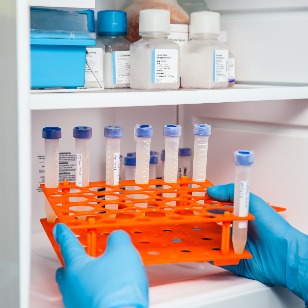
SUBSCRIBE PREVIOUS ISSUES
Take Action
Commit to Going Green in 2023!
The start of the new year brings many New Year’s resolutions and a chance to make a change in our daily lives, both at work and at home. While a commitment to sustainability is likely a familiar concept to many of our readers, we would like to encourage everyone to find a new way to become green in 2023! Even small steps that require little effort can lead to large results or become the start of a bigger change. Here are a few ideas to help drive your action in 2023:
- Begin recycling soft plastics – Soft plastic materials are commonplace in our lives, such as air pillows, bubble wrap, grocery bags and plastic wrap. If you can stretch the plastic by pressing into it with your thumb, it’s a soft plastic! A personal collection is easy to start. Simply take a grocery bag and use it to hold the other deflated soft plastics. Once you have a few full bags, take them to the drop-off location. For example, many local grocery stores collect soft plastics for recycling. For plastic collected at work, there are drop-off locations on the Bethesda campus in the Building 10 Supply Store and on the Building 10 loading docks.
- Choose a new type of green product to use – Green products are available for a wide variety of uses. Whether the product features less plastic, consumes less energy, uses reduced or more recyclable packaging, has less toxic properties or any other manner of green attribute, there is something out there for everyone. One idea for the lab setting is to purchase pipette tip racks that are designed to be re-filled. These products can greatly reduce waste from pipette tip racks and boxes. An idea for home is to replace all light bulbs with LED options as older light bulbs fail. LED bulbs consume considerably less energy than their incandescent counterparts.
- Adopt an alternate form of transportation – Whether traveling to work or anywhere else, there are many easy ways to make your travel more sustainable. If on-campus, consider walking between buildings rather than driving. This helps cut down on greenhouse gas emissions and reduces traffic. If you live close to your workplace, consider biking periodically. Weather can be tricky in the winter, but occasional bike commutes are good for the environment and good for your health. If you live further from your workplace, carpooling is a great way to sustainably commute and means you don’t have to drive every trip. Consolidate multiple trips into a single drive to reduce emissions when not at work.
- Dispose of waste properly – The proper disposal of waste is an easy aspect of our daily lives to overlook. This begins by reducing the ways in which we generate waste. We should also reuse and recycle whenever possible. Lastly, we must ensure waste is segregated and disposed according to its classification, such as medical pathological waste, hazardous waste, universal waste, etc. We must also take care not to dispose any waste to the sanitary sewer unless specifically allowed. The NIH Waste Guide will contain most guidance for disposing waste on the Bethesda campus. When at home, you should consult the guidance provided by your local waste management service.
- Tell someone else about your green practices – Communicating with others about sustainability is one of the easiest ways to create additional change! Share your green practices and experiences with your co-workers, family members and friends! Many people have yet to make a change due to apprehension of the effort involved or being unsure of how to start. A little encouragement and advice could be all it takes for someone else to get involved!
Featured Article

| Enter Your Lab in the 2023 NIH Freezer Challenge!
Does your lab go above and beyond with your freezer management? Would your lab like to increase your freezer reliability? All NIH labs are invited to participate in the 2023 NIH Freezer Challenge.
LEARN MORE
|
Spotlight

| Showcasing the New Look of the NIH Green Zone Newsletter!
You may notice that the NIH Green Zone Newsletter has a new look to begin the new year! We hope everyone enjoys this new webpage format and finds the access to the NEMS website helpful.
LEARN MORE
|
NEMS Training
Did you know? The Freezer Challenge can be completed using initiatives you are already doing! If your lab does any of the items listed above, submit your results to the 2023 Challenge. To learn more about energy conservation at the NIH, please visit the NEMS Training webpage to view a short (20 minute) NIH environmental awareness training video.
The NIH Green Zone Newsletter is a publication intended to inform NIH staff about the Division of Environmental Protection and NIH Green Teams projects and initiatives. The text contained in this newsletter is not copyrighted and can be reprinted without permission. If you use portions of this newsletter in your own publication, we ask that you please credit the source. We welcome your comments and suggestions. Thank you.
|
|---|
| Division of Environmental Protection | Office of Research Facilities | Office of Management
National Institutes of Health | U.S. Department of Health and Human Services
|